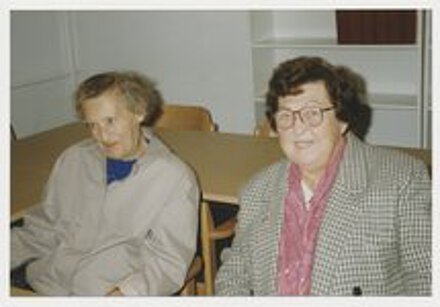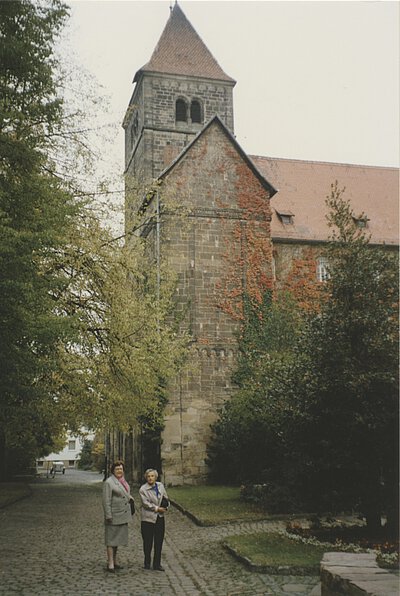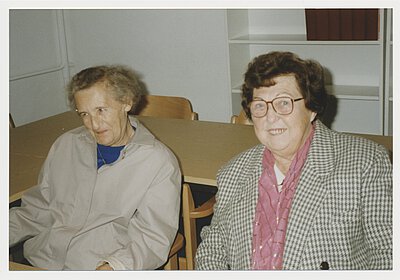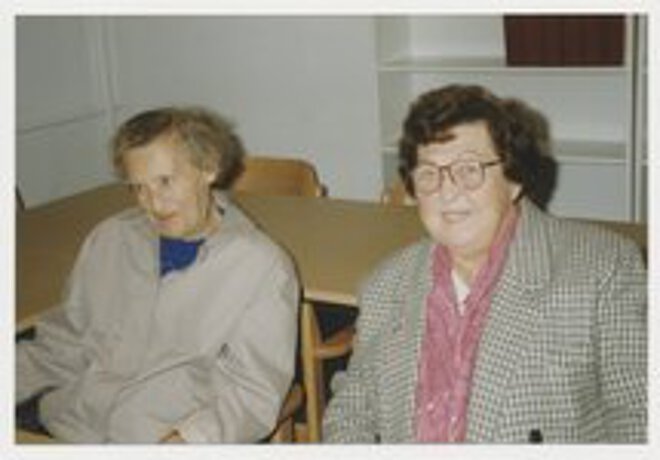Elfriede Frischauf
born 11.01.1925 Bad Sulza
Profession Landarbeiterin
Last place of residence Milda, Thuringia
Biographie
Elfriede Frischauf was born in Bad Sulza in 1925. In April 1942, 17-year-old Elfriede Frischauf completed her compulsory Reich Labour Service (Reichsarbeitsdienst) in Milda, Thuringia. During this service she worked for a farmer who also employed a Polish forced worker. Since the Polish forced worker spoke German, the young woman often chatted with him. Together with a girlfriend, she often chatted and sang with other forced workers and prisoners of war there.
In December 1943, Elfriede Frischauf's friend provided a hiding place to a Yugoslav prisoner of war who had fled a camp. Elfriede Frischauf’s friend then asked Elfriede for help and, together with the Polish forced worker, they provided clothing and food for the refugee. She had much compassion for the Yugoslav prisoner of war, but she was also afraid that others might learn of the forbidden contact with him. Although a Polish forced worker, whom she did not know, warned her that she might soon be arrested because the Yugoslav's escape had failed, Elfriede Frischauf saw no possibility to flee. She was finally taken to the Gestapo in Weimar in February 1944. There she was accused of "aiding the enemy" and "aiding to escape". Together with two other women, she was then transported to the Breitenau "work education camp" (AEL). Upon arrival, the three women were beaten by a female guard and put into an overcrowded cell. A protective custody order was then issued against Elfriede Frischauf and she was transferred to the women's concentration camp of Ravensbrück where she was made to carry the red triangle symbolising the political enemy. At the end of April 1945, she was sent on a death march, where she managed to escape on her third attempt.
At the beginning of 1946, Elfriede Frischauf was able to return to Leipzig to her mother, who had much sympathy for her daughter's actions since she herself had helped foreign forced workers.



